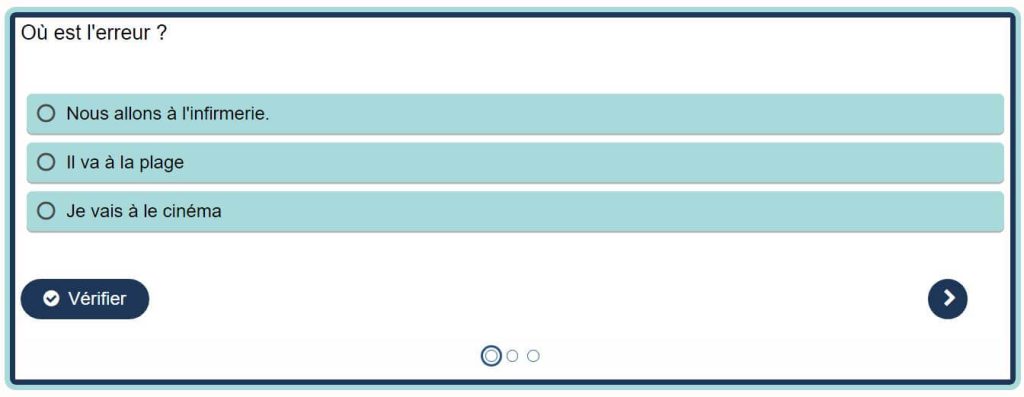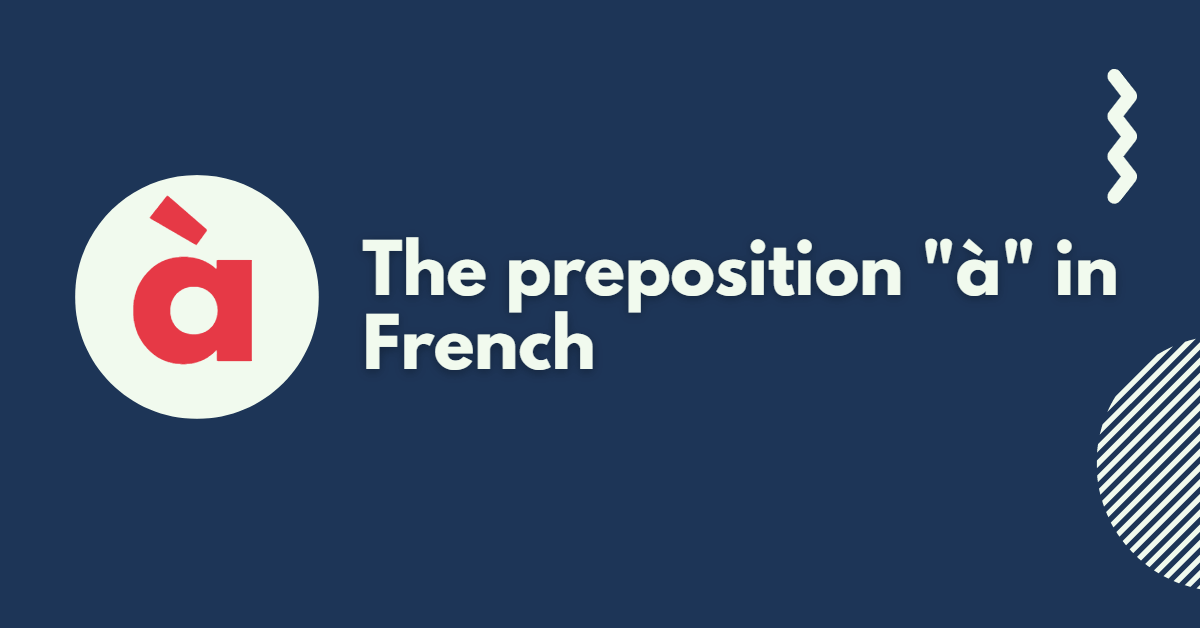First of all, remember what a preposition is, it’s not very complicated. Prepositions are words that indicate relationships between different elements in a sentence. They help us understand where something is, how something is done, when something happens or the relationships between people or things. In English, they are, for example, “on”, “of”, “to”…
The preposition “à” is certainly one of the most important in French, but it is also one of the prepositions where students make the most mistakes, especially because of its contractions.
Contractions of the preposition “à” in French
Like the preposition DE, the preposition À is contracted before the definite articles LE and LES. This phenomenon can be summarized as follows:
Rappel
| à + la | à la plage |
| à + l’ | à l’ hôpital |
| au cinéma | |
| aux toilettes |
Uses of the proposition “à” in French
Rappelle-toi, the preposition “à” is used for:
- Express possession with a verb:
- La voiture est à moi
- Ce chat est à lui
- Talk about a place where you are going:
- Ils vont au café
- Je vais à la plage
- Talk about a place where you are:
- Elle est à la boulangerie
- Nous restons au cinéma
- In front of the city names:
- Je suis à Londres
- Ils vont à Paris
Verbs with the preposition “à” in French
Some verbs are associated with the preposition ‘à‘, such as:
- Verbs that are followed by “à” when followed by a person’s name:
- Téléphoner à
- Parler à
- Ecrire à
- Répondre à
- Some verbs are accompanied by À when they are followed by an infinitive:
- Aider à
- Apprendre à
- Arriver à
- Autoriser à
- Chercher à
- In verbs that express belonging
- Appartenir à
- être à
Attention: This is a very common mistake, which even the French make too often: saying “La voiture à maman” instead of “La voiture de maman”. Since possession is indicated here with a complementary noun, the preposition DE must be used.
– Le chat de Julie >< Le chat est à Julie
Note that these verbs are not always followed by the preposition to and the meaning changes according to their preposition or lack of preposition, for example: “parler de” = “to talk to / about someone” and “parler à” = “to talk to someone”.
Maintenant à toi !
Register for free to do the exercises and access +1000 exercises and videos in French.





